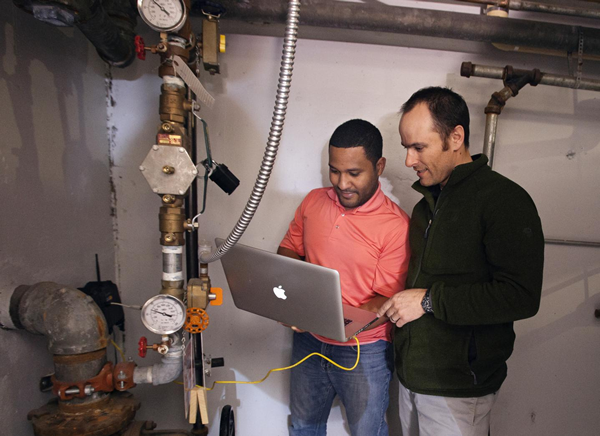News Article
March 11, 2016
Winning the water war starts with winning the battle on data
iUTAH researcher and team lead Jeff Horsburgh was recently featured by the online journal Psys.org. Here’s an excerpt:
The water meter buried in your front yard isn't exactly the most cutting-edge piece of technology. While they are accurate, most residential water meters are read only once per month, resulting in rough usage data - often rounded to the nearest 1,000 gallons. With the limited data, water utility managers can't distinguish individual uses, such as sprinklers versus toilets, or determine usage by time of day. This limits their ability to spot costly leaks or see opportunities for water conservation. And it gives water users no useful information about how and when they use water.
With growing populations in cities and increasing uncertainty about water supply and quality, water resource managers are looking for smarter tools to measure and manage urban water use.
So-called 'smart' meters are one such technology that can capture water use data at high temporal resolution. Smart meters can improve water end-use forecasting and create useful information about demand and supply. And while the new meters show promise, they have failed to achieve widespread adoption in the U.S.
"Replacing existing, analog meters is expensive," said Dr. Jeff Horsburgh, an assistant professor of civil and environmental engineering at Utah State University. "And there is a lack of available cyberinfrastructure for extracting useful information from the large volume of data that smart meters produce.”

« Back to list of all news articles


